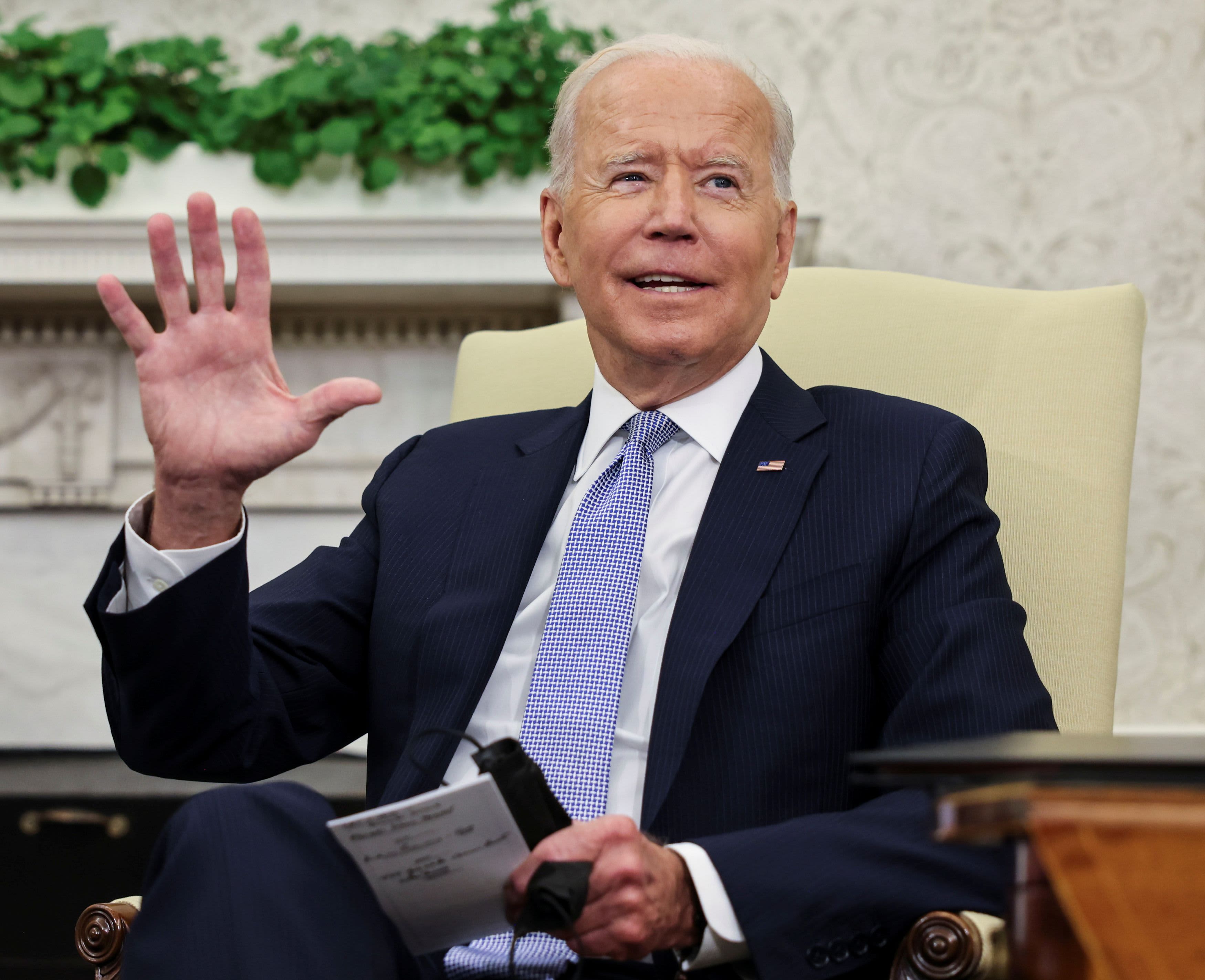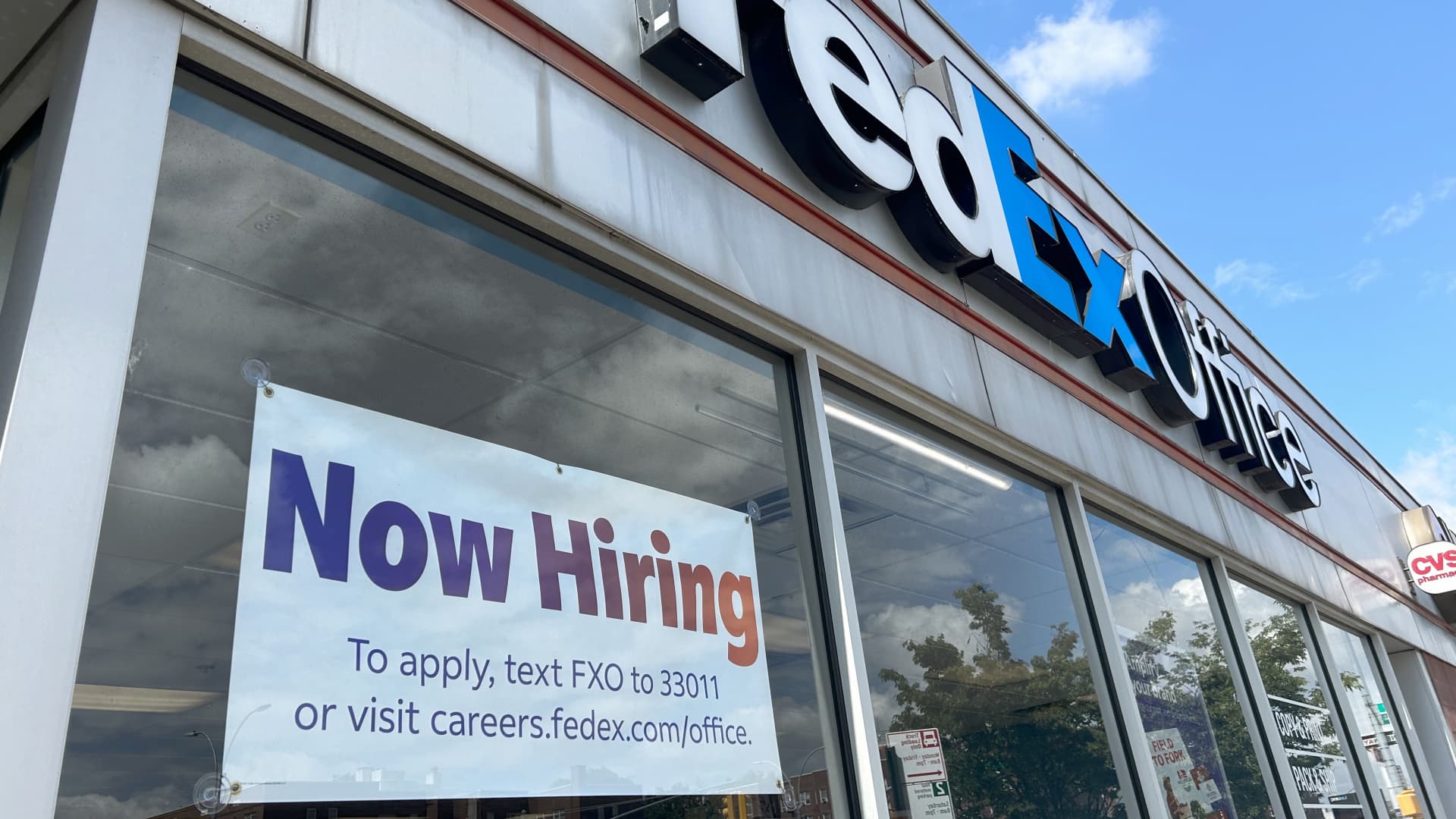
U.S. President Joe Biden responds to questions in the Oval Office at the White House in Washington, September 24, 2021.
Evelyn Hockstein | Reuters
WASHINGTON — President Joe Biden will huddle with members of the two warring factions of Democratic lawmakers Tuesday as he tries to salvage his sprawling economic agenda.
Biden’s first meeting was with Arizona Sen. Kyrsten Sinema, who arrived at the White House shortly before 11 a.m. ET. Sinema is one of two moderate Democrats in the Senate who have so far refused to vote for a social safety net bill that makes up one half of Biden’s two-part domestic policy plan.
Later in the day, the president, Vice President Kamala Harris and Treasury Secretary Janet Yellen will meet with House progressives first, and later with House and Senate centrists.
Progressives invited for a meeting at 2 p.m. ET include Reps. Katherine Clark of Massachusetts, Debbie Dingell of Michigan, Pramila Jayapal of Washington, Mark Pocan of Wisconsin, Ritchie Torres of New York and Jimmy Gomez, Jared Huffman, Ro Khanna and Barbara Lee, all of California.
A later meeting at 4:30 p.m. ET will be attended by Sens. Catherine Cortez-Masto of Nevada, Jon Tester of Montana and Virginia’s Mark Warner. They will be joined by California Reps. Ami Bera and Mike Thompson, Washington Rep. Suzan DelBene, Josh Gottheimer of New Jersey and Tom O’Halleran of Arizona.
The discussions come as Democrats struggle to bridge deep divisions within their caucus over a massive bill to invest in the social safety net and climate policy, both core pieces of Biden’s domestic agenda.
The outcome of this week’s talks could determine not only whether that proposal gets through Congress, but also whether its companion legislation, a $1 trillion bipartisan infrastructure bill already passed by the Senate, garners a majority in the House.
Senate Majority Leader Chuck Schumer, D-N.Y., and House Speaker Nancy Pelosi, D-Calif., have said they want to pass both plans before the end of October. But with just 7 congressional working days left in the month, that deadline appears all but impossible to meet.
As of Tuesday, Democrats had not agreed on an overall price tag for their social spending plan, let alone written the specific legislation.
President Joe Biden initially proposed a $3.5 trillion “human infrastructure” plan that would have included new child care subsidies, Medicare expansions, an increased Child Tax Credit, universal pre-K and two years of free community college, as well as broad investments in green energy.
But Biden’s plans have encountered stiff opposition from Sinema and Sen. Joe Manchin, a West Virginia Democrat who can sink the bill on his own in the evenly split Senate.
Manchin says he will not vote for more than $1.5 trillion in spending, a stance that puts him at odds with House progressives, who wanted to spend more than $3.5 trillion on the plan.
He has also signaled his opposition to a clean electricity standard that is at the heart of Biden’s green energy plan, and he has called for means testing several of the family benefit programs.
Now, Democrats must hash out which programs should be cut entirely, which can be trimmed, and which should remain unaltered in final legislation.
The outcome of these negotiations will determine whether millions of Americans see a boost in federal benefits in the coming years.
They will also shape the long-term scope of the federal response to climate change, which has contributed to a wave of devastating fires and storms in the U.S. this year.
Manchin met separately on Monday with Jayapal, who chairs the Congressional Progressive Caucus, and with Senate Budget Committee Chair Sen. Bernie Sanders, I-Vt, the unofficial leader of a progressive bloc of Democratic senators.
There were few signs these talks were actually productive, however.
“Look, we talked and we’re going to continue to talk, and I look forward to it,” Sanders told reporters after his meeting with Manchin.
West Virginia is one of the nation’s top producers of coal and natural gas, which helps to explain Manchin’s opposition to programs designed to cut back on fossil fuel dependence.
But he is also heavily invested in the coal industry himself. Manchin’s largest single source of income in 2020 was a coal consulting business he founded, which is now run by his son.




